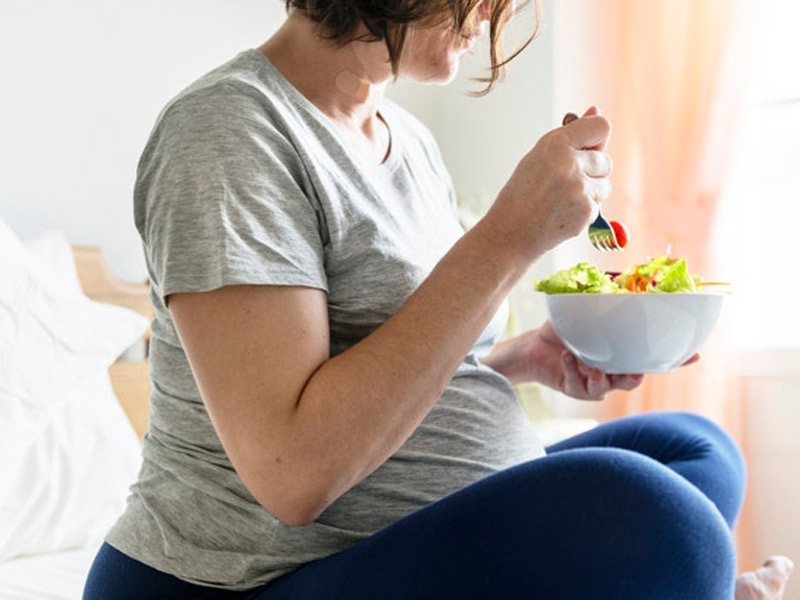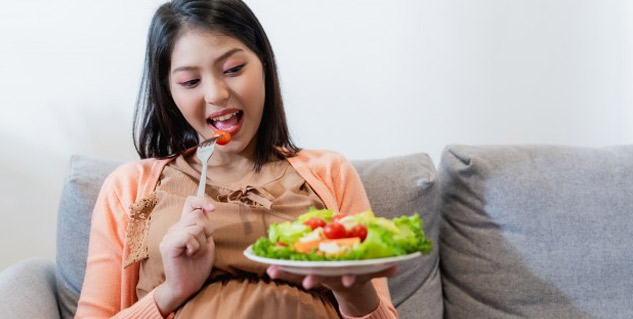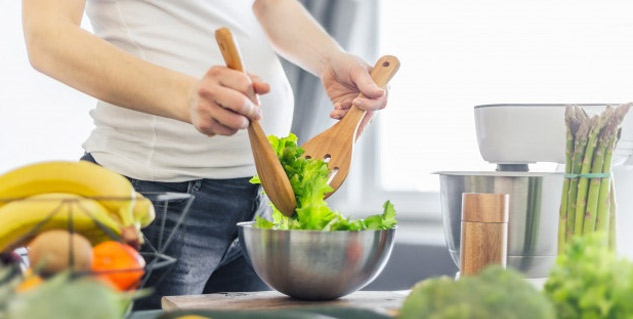
Although having a proper diet is crucial at any stage of life, more so during pregnancy because during this time a woman not just has to care for her well-being but that of her child too. The Government of India (GOI) says that a pregnant woman should have plenty of fruits, especially seasonal, and vegetables, for iron and other vital nutrients. Notably, green leafy vegetables are a rich source of iron and folic acid. If you are pregnant, you should also have cereals, whole grains, and pulses. In fact, vegetarians must have at least two cups of daal every day to meet their daily protein requirement. Non-vegetarians can have eggs, chicken, and fish. Milk and dairy products, as well as nuts, should find a place in your daily diet. This is what GOI recommends. But, have you ever wondered what our ancient holistic medical system, Ayurveda says about diet for pregnant women?
Table of Content:-
To seek an answer to this question, Onlymyhealth spoke to Dr Sharika Menon, who is a senior Ayurveda expert with Art of Living’s Sri Sri Tattva Panchakarma. This is what she has to say on this.
Managing Your Doshas

(Photo Credit: Freepik)
First and foremost, says Dr Menon, one must see if the expecting mother has any digestive issues that need to be taken care of. Once that is done, you need to ensure the food you eat doesn’t aggravate two doshas: vata and pitta. Let us take a look at them one by one
Vata Dosha
- Vata is associated with the element of air, which takes care of all the movement in the body.
- Excess air can cause restlessness, disturbed bowel movement, and poor sleep quality.
- Vata dosha also affects Apaana vayu, which helps to push things out of the body. Understandably, it is crucial during labour and childbirth. “So that is one thing that we look for and to take care of,” said Dr Menon.
Pitta Dosha
- Pitta is the fire energy.
- It is important to keep pitta under control as excessive pitta can cause bleeding and other issues, Dr Menon said.
- Hence, your diet should be such that balances these energies.
Foods To Avoid

(Photo Credit: Freepik)
First and foremost, acidity and gas can be experienced during early pregnancy. There are medicines and herbs available to manage them. Also, you should avoid certain foods, or at least limit your intake. Such foods include:
- Food items that are too sour in taste
- Those that are fermented too much
- Artificially fermented foods
- Very spicy food
- Snacks that are too dry, such as namkeen
What You Should Have
While pregnant, your diet should be light and simple, which can be either rice or flour-based, whatever you are used to. Have a lot of milk and other dairy products. Additionally, diets are recommended based on a woman’s doshas and stage of pregnancy, said Dr Menon. However, this cannot be generalised and is recommended after consulting a ‘vaidya’ (traditional doctor).
Also read: Thyroid During Pregnancy: Can It Affect The Baby? Know Treatment From Expert
What About Cravings?
During the fourth month of pregnancy, a woman is called Dauhrida, which means two hearts. This is because during this time the baby’s heart gets fully developed. This is also the time when a woman experiences cravings, even for foods that she disliked pre-pregnancy. “It is said that it (the craving) should not be suppressed and at the same time don’t be very strict with that either,” said Dr Menon. However, post this phase, be watchful of your diet, your thoughts, and the emotions that give rise to these cravings. What might help you with this are chanting, meditations and listening to different stories.
Dr Menon says that not just during pregnancy, it is better if the couple take care of the imbalances (doshas) before pregnancy. This will ensure both a healthier pregnancy and a healthy child.
(With inputs from Dr Sharika Menon, who is a senior Ayurveda expert with Art of Living’s Sri Sri Tattva Panchakarma)
Photo Credit: Freepik
Also watch this video
How we keep this article up to date:
We work with experts and keep a close eye on the latest in health and wellness. Whenever there is a new research or helpful information, we update our articles with accurate and useful advice.
Current Version
